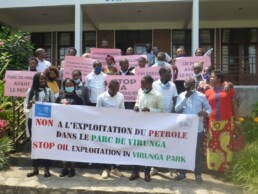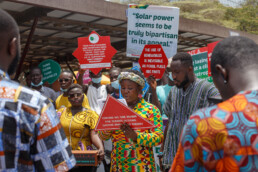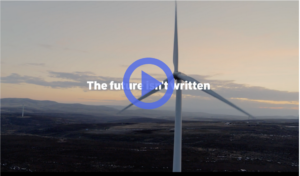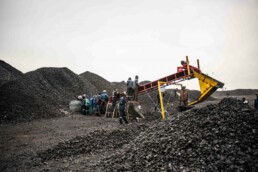#AfrikaVukaNews: New year and re-energized in our pursuit for climate justice
As we leap into the month of February we hope that this last month, since we started the new year, has been good to you and that you are still staying safe and healthy.
We continuously acknowledge that many communities across the world are still experiencing the adverse effects of climate change and are working hard to rebuild what has been lost. We stand in solidarity with them and hope that this year, the AfrikaVuka Newsletter will continue to inspire more people in the world to stand up to the fossil fuel industry to build a sustainable future.
AfrikaVuka believes in unity and with this new year, this new chapter, the words of the late Archbishop Desmond Tutu continues to echo in our hearts, saying:
“We are made for goodness. We are made for love. We are made for friendliness. We are made for togetherness. We are made for all of the beautiful things that you and I know. We are made to tell the world that there are no outsiders. All are welcome: black, white, red, yellow, rich, poor, educated, not educated, male, female, gay, straight, all, all, all. We all belong to this family, this human family, God's family.”
In Case You Missed It
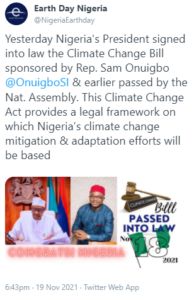
Nigeria Climate Bill: On Thursday, 18 November 2021, Nigeria’s President Muhammad Buhari signed into law the climate change bill passed by the national assembly. This comes after the country's announcement of working towards a 2060 net-zero target at the COP26 climate talks in Glasgow.
Nigeria now joins an elite group of countries that have enacted emissions-target legislation aiming to curb carbon emissions. The new climate change law is significant in many ways as it sends a strong positive message to the world that Nigeria understands the enormity and urgency of resolving the current climate crisis.
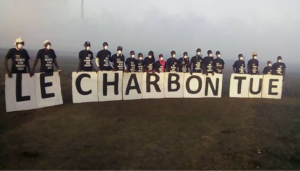
San Pedro coal-fired power plant: Communities of San Pedro, Côte d'Ivoire, local and global environmental civil society, have been fighting for years for the cancellation of the controversial San Pedro coal-fired power plant project. These communities are now demanding an official statement from the government to confirm if the Ivorian government is serious about abandoning the project. The announcement to abandon the project was reportedly made on November 18th by the Minister of the Environment and Sustainable Development speaking to parliamentarians during the budget session.
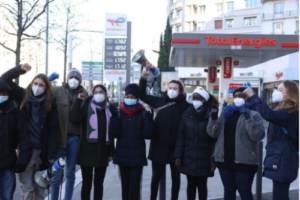
#StopEACOP: The #StopEACOP (East African Crude Oil Pipeline) Campaign started the year with a bang with activists from Uganda and Tanzania crossing the oceans to France on a quest to denounce the involvement of the French oil giant, TotalEnergies, in the EACOP project and its related activities. In a ceremony meant to celebrate the city of Grenoble as Europe’s Green Capital, activists called out the irony of the award when the most ecologically destructive project is organized in the same country. The activists protested at various TotalEnergies gas stations and organized street marches as well as challenged the leaders of the country to take action and stop the EACOP project.
You can continue to show your support by writing to the banks most likely to consider financing the pipeline. Together we can #StopEACOP and create a just and sustainable economic future.
One to Watch
2022 - Hope Needs Action
As we review 2021, we cannot help but be amazed at some of the epic wins, and very insightful learnings on events and campaigns that are important to stopping the climate crisis. Through these, we will continue to raise our voices and stand against climate justice.
A breath of Fresh Air as Coal Free Nigeria Campaigners meets Legislators
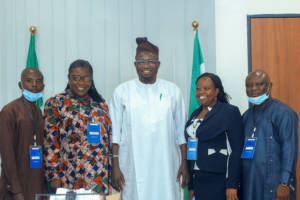
Coal Free Nigeria campaigners from Benue State, Kogi State, Kaduna State, Nasarawa State and the Federal Capital Territory received a breath of fresh air in their bid to get the government of Nigeria to stop the issuance of coal mining licenses. This fresh air came with resounding hope as the activists met with legislators representing communities that are already grappling with the adverse effects of coal mining at the recently held National Climate Lobby Day.
The National Lobby Day commenced on Monday the 25th of October, 2021 with the training of coal campaigners on the act of lobbying by David Michael Terungwa. The campaigners were taken through the 5-levers of building political will and through a demonstration of a mock lobbying exercise the advocates shown the act of lobbying. Thereafter, campaigners practiced in different groups how they were going to engage the legislators on Coal Free Nigeria demands.
Consequently, On the bright and sparkling morning of Tuesday, 26th October, 2021, the team approached the National assembly complex with twisted feelings of excitement and trepidation with uncertainty of how events will pan out. After a few hitches at the entrance of the complex, the team proceeded to capture this historical moment in still pictures. Thereafter, one after the other, 5 different groups went in search of their designated Senator or House of Representative member.
After about 3 hours of scanning for the offices of their designated legislators, the group returned with bursting euphoria of the feat they just achieved. The community member from Benue State successfully got in touch with their representative, Honourable Patrick Ejeh. He welcomed the team with great enthusiasm and he expressed his oblivion of the coal mining activities taking place in Ogbadibo Local Government Area of Benue State. He requested for documentation of the team findings on the activities of coal miners in the area, unfortunately, the team from Benue did not have one at the time. They however, assured the Honourable of presenting him their findings by their next visit.
On the other hand, their counterparts from Kogi were unable to meet Honourable Zakari Alfa who represents Ankpa LGA, but were able to secure a rescheduled date for the meeting. Furthermore, other campaigners met the Senate Committee Chairman on Ecology and Climate Change, Senator Mohammad Gusau who received them warmly. He solicited that the campaigners engage the Nigerian team at the COP 26 in Glasgow.
In retrospect, the first National Climate Lobby Day presents light at the end of the tunnel for the Coal Free Nigeria campaign.
BY Joseph Ibrahim
EACOP-AFFECTED COMMUNITIES TRAINED IN MEDIA USE
Community-Based Monitors (CBMs) from six Ugandan districts have been trained on how to use the media. The trained monitors were drawn from six of the ten Ugandan districts through which the East African Crude Oil Pipeline (EACOP) will pass.
The monitors were trained during a September 21, 2021 workshop that was organised by Africa Institute for Energy Governance (AFIEGO). At the training, the monitors were taught how to do the following: identify newsworthy stories, pitch their story ideas to editors, operate as citizen journalists who capture their communities’ stories and share them with the media, write op-eds and others.
WHO ARE THE COMMUNITY-BASED MONITORS?
The Community Based Monitors are community leaders who observe and report on the human rights situation of the 3,045 households whose land is being compulsorily acquired for the EACOP project in Uganda.
The Community Based Monitors were trained not only because they have knowledge of the challenges their communities face but because they are also literate. With their reading, writing and oratory capabilities, they can ably use the media to tell their communities’ stories.
While the above is true, prior to the training, the Community Based Monitors lacked media engagement skills. This limited their capacity to use the media to tell their communities’ stories. This undermined community advocacy efforts to protect community rights.
WHY EACOP COMMUNITIES NEED TO USE THE MEDIA
The EACOP, a planned 1,443km pipeline, has a big environmental footprint. According to the World Wide Fund for Nature (WWF), the pipeline will affect nearly 2,000 sq. km of protected wildlife habitat. Endangered species such as chimpanzees, elephants and others have been put at risk because of the EACOP project.
Lake Victoria, the second biggest freshwater lake in the world on which up to 40 million people in East Africa depend, is also set to be affected by the EACOP. Further, the pipeline has presented climate change concerns with up to 34.3 million metric tonnes of carbon per year expected to be produced when the oil transported by the EACOP is used.
Ugandans, majority of whom are employed in the agricultural sector, depend on good climate as well as healthy ecosystems to make a living. The EACOP is therefore a threat to their livelihoods.
DISRUPTION OF LAND-BASED LIVELIHOODS
Moreover, already, the EACOP has disrupted the livelihoods of the 3,045 households whose land is being compulsorily acquired for the project.
Through cut-off dates that were set in 2019, the 3,045 EACOP-affected households were stopped from using their land to grow perennial food and cash crops. The people were also stopped from setting up any new developments. Food stress and loss in incomes have resulted as a result of the above. Women and girls have borne the brunt of the above impacts.
MEDIA AND HUMAN RIGHTS PROTECTION
The media plays a critical role in protecting the rights of people. To empower the EACOP-affected people to tell their own stories through the powerful media, the September 21, 2021 media training for the Community Based Monitors was organised.
FRUITS OF TRAINING
Since their training, the CBMs have written op-eds that have been published over five times in the national press. Some of the published op-eds may be seen here and here (see article 2).
With AFIEGO and our partners’ support, the CBMs have also used their citizen journalism and other skills to engage the media to demand for fair compensation. Through the media engagements, the people’s demands have been published in over eight national and sub-national media outlets. Some of the published stories may be seen here or here or here or here. The media stories create the pressure needed to protect communities’ rights.
The communities need to be further supported to engage the media to protect our shared climate, the environment and their livelihoods.
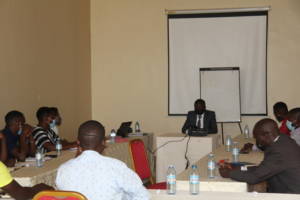
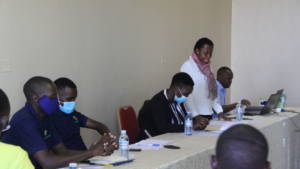
Abuja Hotspot for a Global Just Recovery
The just-concluded Global Just Recovery Gathering was a delightful online conference that brought together individuals from all over the world. Participants at the Abuja hotspot hosted on Friday, 9th April 2021 expressed their delight at the outcome of the gathering. The “hotspots”, also held in a number of other countries across Africa, allowed families, friends and colleagues to physically gather together to watch and participate in the virtual sessions that had been organised as part of the gathering.
From the movement story on why we need a new multilateralism for a global just recovery, to the workshop on UNFCCC COP, participants learned from the wealth of experience of the speakers and enhanced their understanding of the climate movement and how everyone's effort is critical in actualising a just recovery world.
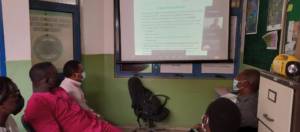
One of the participants expressed his agreement on the issues of global financing discussed by Masego Madzwamuse and other speakers on the subject of multilateralism for a just recovery.
In conclusion, the hotspot event which lasted for four hours was a success as participants got the opportunities to listen to global speakers on current issues and also to appreciate various cultural practices from across the globe.
A big part of a just recovery is bridging the gap and building on equity. By hosting this hotspot event we ensured that those without internet access were able to join this community. Notwithstanding the Covid19 prevention protocols in place, existing members of our movement interacted with the newbies and together made commitments towards a #CoalFreeNigeria at the Global Just Recovery Gathering. To support our movement do check out the #CoalFreeNigeria page and take action with us.
By Ogho Udoko Agnes
Nigeria Joins the rest of the world to demand for a Just Recovery
On Friday the 19th of March, 2021 Non-Governmental Organisations, Civil Society Organisations and environmental enthusiasts across Nigeria performed various public actions reechoing their demands for the Government of Nigeria to stop issuing coal mining licenses. These actions took place in seven locations viz Abuja, Abia, Benue, Kano, Kaduna, Lagos, and Port Harcourt.
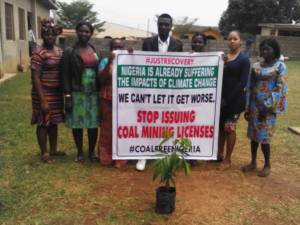
Campaigners across the country visited different government offices (Federal Ministry of Environment, Abuja, State Ministry of Environment, Benue, and the National Environmental Standards and Regulations Enforcement Agency, Kaduna), with a clear message to the Nigerian Government to stop the issuance of coal mining licenses. The message was accompanied with a beautiful plant which reinforced the foundation of a non-violent approach to the Coal Free Nigeria Campaign.
The action was in solidarity with climate campaigners across the world who took to the street to demand for JUST RECOVERY on the Global Climate Strike day. Consequently, the action increased the impetus of the Coal Free Nigeria Campaign as more local communities joined to demand for climate justice.
On the other side, feedbacks and content generated from the local action were shared on social media in order to increase awareness and amplify the voices of the frontline communities.
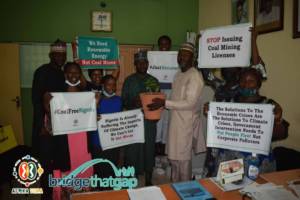
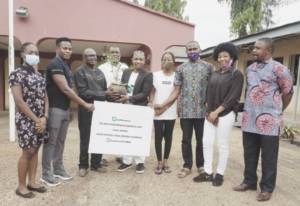
Furthermore, the action was able to secure more signatories to the online petition that is asking the Nigerian Government to stop the issuance of coal mining licenses so as to make it easy for our country to usher in a just transition from fossil fuel dependence and more so, ensure we are playing a great role in minimising the rapidness of climate change.
By; Joseph Ibrahim, Ogho Udoko and Francis Ebhodaghe
Digital organising in the Covid-19 era
The curtains for the Afrika Vuka Climate workshop were drawn with an interesting session on Digital Organizing. This session focused on how activists across the continent can mobilise and campaign effectively in the face of a global pandemic. The panelist, Joseph Ibrahim of the Coal Free Nigeria Campaign and Ibra Cassis of Save Bargny campaign in Senegal took the participants on a ride of their experiences in digital organizing.
For Joseph Ibrahim, he emphasized the importance of establishing the objective of the campaign and how it aligns with existing traditions, culture, religion, and laws of the people. He then stated that these identified objectives should be communicated to the target audience using the most compelling stories.
He advised activists to place a high premium on telling the truth while telling stories of frontline communities as this will be the basis of a successful campaign.
On his part, Ibra Casis highlighted the demographics of internet users across the globe. He stated that with the number of people who use digital platforms on a daily basis, it will be unwise to disregard digital organizing. He further stated that digital organizing is the future and all activists should embrace it.
The panelist proposed a number of tips on digital organizing such as:
- Determine a hashtag for the key message of the campaign e.g #CoalFreeNigeria
- Identify the digital platform where your target audience is.
- Produce quality visual and audiovisual content for storytelling
- Use social media such as Twitter, Facebook, WhatsApp, Instagram and Linkedin to share quality content
- Tag your target audience on your post
- Use online petitions to get people to commit to the campaign
- Publish articles and news items online.
By Joseph Ibrahim of the Coal Free Nigeria Campaign
Building climate-resilient local communities & groups in Africa
350Africa under the #AfrikaVuka platform has brought together organizers, campaigners and journalists to learn from specific campaign case studies and gain campaign skills and tactics that can help grow relevant climate campaigns across Africa.
We, as Mt Kenya Network Forum, operating and working with communities on the footsteps of Mt Kenya. Feel overwhelmingly privileged and honored to be part of session 2 of the climate workshop, exploring and sharing ideas around some of the most important issues related to the climate crisis.
And more importantly, the inspiring campaigns that are part of #AfrikaVuka.
After joining the first #AfrikaVuka Climate Workshop where the speakers gave an exciting introduction to #AfrikaVuka. We felt enthusiastic and passionately interested in the below topic
-
-
-
- Learning experiences from organizers about some of the tactics used for successful campaigns which include grassroots mobilizing /power of coalitions /finance /lobbying and advocacy.
-
-
Mamadou Barry from Senegal focused his presentation on the successful actions in Bargny against the coal power plant which include grassroots mobilising /power of coalitions /finance /lobbying and advocacy - see here some actions of the campaign SaveBargny.
Portia Baffour from 350Ghana Reducing Carbon (G-ROC) gave her experiences on mobilizing and empowering young people in partnership with key stakeholders to actively champion the need to reduce our carbon emissions and promote renewable energy systems as a key effort in combating climate change. Their key role involves contributing and/or influencing national environmental policies, strategies and implementation plans positively through interventions such as public education and awareness creation, publication of briefs and other papers and media engagement in our quest to keep the momentum up and really shift power. Once their key success and achievement has been to mobilize in conjunction with other youth groups to openly protest and petition the government of Ghana’s intention to construct a 700 megawatt of Coal-fired Power Plant for the first time in the country since their return from the event in Istanbul.
Omar Elmawi from Lamu, shared some tactics used on the deCOALonize Campaign in Kenya in four words: Mobilising community, Lobbying, Communications and Litigation. He brings out the challenges in growing as a group, Lack of expertise, Litigation setbacks, time and lack of access to information as the main ones.
The lessons learned out of these great and very successful experiences and group formations will go a long way in assisting our group and the communities we work with. We look forward to the power and momentum we will build with #AfrikaVuka, and more incredible stories and ideas we will all bring to the fore through our organizing. We also ask and advise other young and interested groups to join #AfrikaVuka and attend the remaining sessions of the Climate #AfrikaVuka workshop and join us from the 9th to the 11th of April, for the virtual event / training, aiming at skilling up the climate movement, with inspiring panels and training, bridging intersectional connections among different movements, and creating space for intergenerational dialogues between the youth climate movement and older activists.
By: Stephen Kariuki K
Mt Kenya Network Forum - Founder
AfrikaVuka Climate Workshops
5 years after the Paris Agreement, world leaders are expected to come forward with updated, more ambitious national climate plans made under that historic agreement. Though some countries have tried their best to cut emissions and show bold climate actions, many including the most powerful and heavy emitters are still lagging behind.
Africa is the most-exposed region to the adverse effects of climate change despite contributing the least to global warming. The region is already disproportionately feeling the impacts related to a changing climate. Devastating cyclones affected 3 million people in Mozambique, Malawi, and Zimbabwe in the spring of 2019. Hundreds of thousands across West Africa and the Sahel region are still recovering from the floods that hit last August and September.
Despite this gloomy picture, the regional climate movement is emerging, slowly but surely, challenging the first coal projects in a number of countries and showing the safe pathways to follow if Africa really wants to break free from fossil fuels and embrace a bright and sustainable future based on renewables.
Encouraged by recent victories and guided by our mission to build the capacities of regional organisers, 350Africa is proposing a new series of workshops on winning campaign techniques and tactics, with the hope that the workshop will result in a new wave of large-scale climate actions as we work towards ending the age of fossil fuels and moving to clean, renewable energy.
At the end of the 4 sessions, participants are expected to have gained fresh knowledge, practical skills and confidence that can allow them to launch and/or re-energize the climate struggles and campaigns they are engaged in. They can decide to work on renewable energy campaigns at a local level, target specific institutions behind fossil fuel projects in their areas, or strategize on stopping existing ones. The workshops will also touch on story-telling - a powerful tool in sharing and amplifying the campaigns’ voices and demands.
Click here to register and join the AV Climate Workshops and to meet powerful and motivated organisers and campaigners working to break Africa free from fossil fuels and embrace a bright and sustainable future based on renewables.
